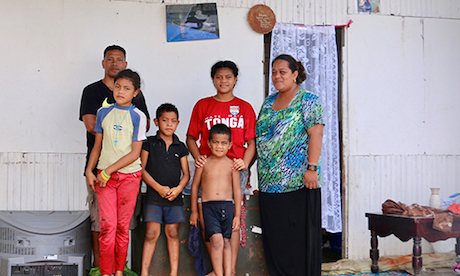Caritas Aotearoa New Zealand is working with communities affected by Cyclone Gita to provide training and repair kits in a joint programme with Habitat for Humanity.
The programme will ensure that communities have the skills necessary to rebuild, said Amelia Ma’afu the acting director of Caritas Tonga.
The Support to Self-Recovery programme provides timber, tools, equipment and training so people can restore their own houses, with Build Back Safer principles an essential component of the repair work.
Amelia said that homeowners will be able to use these skills as they rebuild their homes with kits provided.
The Build Back Safer principles encourage the use of cyclone strapping and bracing, and introduce techniques that will increase the resilience of homes to future storms and earthquakes.
Habitat for Humanity Chief executive, Claire Szabo, said the money raised would include money from the community and businesses lending financial support, tools and tradespeople.
“The locals are very involved,” she told Radio New Zealand.
“We have engineers and builders that are involved in supervision both here in New Zealand and up in Tonga.
“So there’s a whole crew of people to get involved to make our model happen.”
The project aims to rebuild 500 homes.
Palasa and Vaea Lolesio and their four children live in Fo’ui village.
They are one of many families whose homes were destroyed by cyclone Gita.
Their house was almost completely destroyed; only the walls of the kitchen and a small bedroom on the side of the house remain standing.
Vaea was able to rescue some of the roofing iron to straighten it out and make a shelter for the family to live in.
But the roof still leaked through old nail holes and splits in the iron.
He fixed this problem with a tarpaulin he received from Caritas.
He was committed to rebuilding the house with his brother’s help but couldn’t afford the materials required. He says he has the skills necessary and will start the rebuild as soon as he can.
Donate to Caritas
Source
Additional readingNews category: Asia Pacific.




